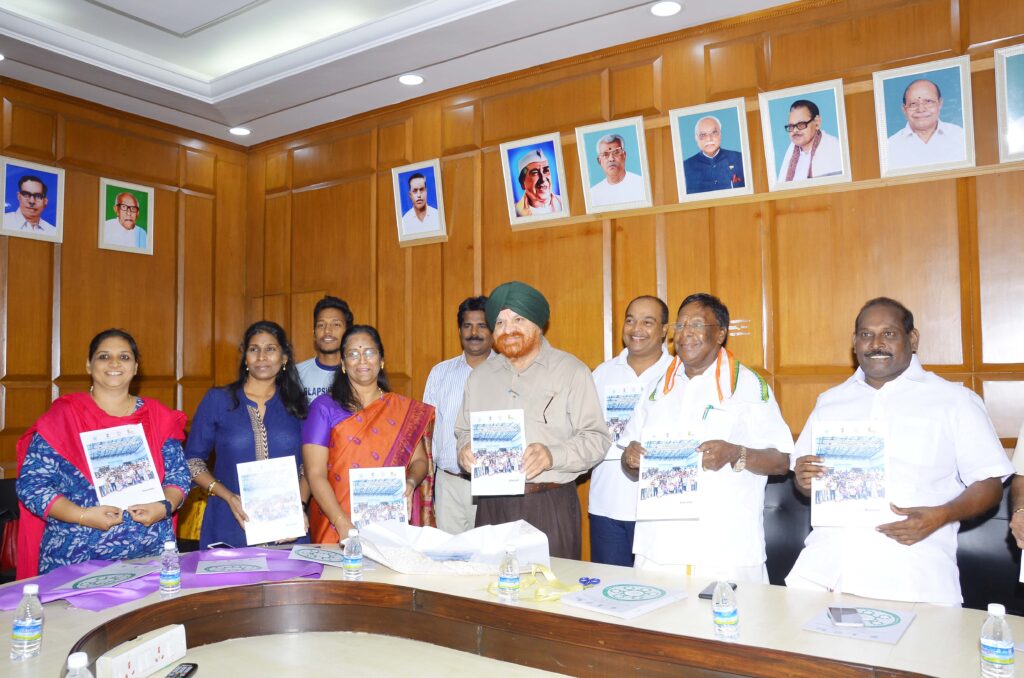
In a groundbreaking effort to combat the challenges posed by climate change, resource depletion, and pollution, the Comprehensive Green Protocol (CGP) was launched to guide diverse sectors in the Union Territory of Puducherry towards sustainability. This visionary initiative, developed through a collaborative effort by the Department of Science, Technology, and Environment (DST&E), the Puducherry Pollution Control Committee (PPCC), Pondicherry University, and the Association for Promoting Sustainability in Campuses and Communities (APSCC), aims to serve as a practical guide for educational institutions, industries, residences, and organizations.
The Urgency for a Green Protocol
With over 1.2 billion people and a predominantly agrarian economy, India faces the dual pressures of increasing greenhouse gas emissions and climate vulnerability. Issues like water scarcity, air pollution, and waste mismanagement are becoming increasingly severe. Puducherry, as a coastal region, is particularly susceptible to these challenges. The Comprehensive Green Protocol addresses these critical issues by providing actionable strategies for sustainable development.
Key Features of the Green Protocol
The CGP emphasizes environmentally responsible practices across sectors. Its framework integrates land use planning, resource management, waste segregation, energy efficiency, and educational initiatives. The protocol encourages the adoption of renewable energy, rainwater harvesting, and soil conservation practices, aligning these actions with global Sustainable Development Goals (SDGs).
Educational institutions are prioritized as starting points for the implementation of this protocol, recognizing their role in shaping future leaders. Universities, schools, and colleges are seen as ideal hubs for raising awareness, fostering environmental stewardship, and promoting community engagement.
Implementation Strategy
The protocol outlines a multi-step approach:
1.Stakeholder Engagement: Establishing committees for planning, monitoring, and documentation.
2.Awareness and Training: Hosting workshops and training sessions to instill sustainability practices.
3.Infrastructure Development: Setting up facilities for waste segregation, nutrient recovery, and energy conservation.
4.Monitoring and Reporting: Periodic evaluations to ensure adherence to the protocol and track progress.
Relevance to Policy and Global Goals
The CGP aligns with major national and international initiatives, including India’s National Action Plan on Climate Change (NAPCC), the Sustainable Development Goals, and the principles of the Rio Declaration. The protocol also incorporates the 2016 Waste Management Rules, highlighting the importance of waste minimization, segregation, and recycling.
Call to Action
This initiative is more than just a set of guidelines—it is a call for collective responsibility. The CGP urges all stakeholders, from government bodies to individuals, to embrace sustainable practices. By doing so, Puducherry aims to create a replicable model of environmental stewardship for other regions in India and beyond.
The Comprehensive Green Protocol stands as a beacon of hope, steering Puducherry towards a sustainable and resilient future. With continued collaboration and commitment, this protocol could pave the way for transformative environmental action, ensuring a healthier planet for generations to come.
Media: https://www.thehindu.com/news/cities/puducherry/green-protocol-for-ut-released/article23598802.ece
